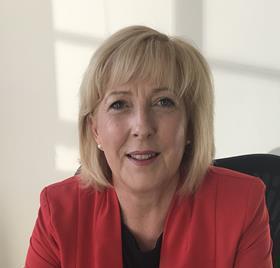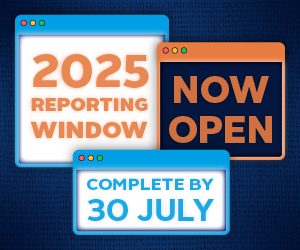By Fiona Reynolds (@Fireynolds), CEO, PRI

The history of the PRI in many ways reflects the history of responsible investment itself. We’ve grown from a small yet committed group of 68 founding signatories in 2006 to well over 3,000 global signatories today. And, just as responsible investment is at various stages of maturity and evolution around the world, so too is our membership. As our signatory base has grown it has become increasingly diverse, and the organisation has developed a big tent approach to house them all.
Part of our theory of change is that a rising tide lifts all boats, so ultimately, in seeking to advance responsible investment and fulfil our mission, we believe that we must bring everyone along on this journey with us. A truly sustainable future will require active participation, not only from those who are leading the way, but also from those who are just starting out on this path. However, that doesn’t mean we can just coast along—bridging the gap from where we are to where we need to be will require significant forward momentum.
Our signatories are calling for this momentum, in the form of strengthened accountability and minimum requirements of PRI membership, as well as greater recognition of leadership. PRI’s ten-year Blueprint for responsible investment aims to provide just this, to move the needle on what it means to have membership, to hold signatories to a greater lever of accountability, yet at the same time to support signatories who are willing to improve.
Minimum requirements
The first set of minimum requirements were therefore implemented in our 2018 Reporting Framework. Each year, signatories not meeting them enter a two-year engagement period with PRI, in which we provide support and resources to help them make the necessary changes to their policies and practices. This year, our first set of signatories has reached the end of this process. It’s the first time we will delist signatories for not meeting the minimum requirements.
However, those we delist come only after extensive engagement efforts across the past two years. It’s always our aim to get signatories moving forward in their responsible investment practices rather than delist them.
Engagement
To make the process fair and transparent, we have ensured awareness of the requirements across the signatory base. This has included steps such as a dedicated webpage, explanatory notes in the Reporting Framework, annual webinars and email and phone support. We also added a function to the Reporting Tool which requires signatories to confirm understanding before submitting their annual report.
In addition, we’ve undertaken a one-on-one engagement programme with affected signatories, following an action plan to assist them in meeting the requirements within the two-year period. Through this programme, we’ve provided guidance and resources, clarifying any confusion and following-up on progress.
Delisting
Overall, our engagement with those signatories not meeting the minimum requirements in 2018 has been a success. 92 percent of those we engaged with went on to meet the minimum requirements by this year and are no longer at risk of delisting.
Of the 165 signatories who were originally identified as not meeting the minimum requirements, we are now only left with five who have not been able to demonstrate meeting the requirements and for which the PRI Board has approved delisting. A further 23 signatories chose to delist themselves as part of this process, or were delisted for other reasons such as failure to submit their annual report.
You can find the full list of signatories being delisted for not meeting the minimum requirements on our website.
Continuous improvement
Having now been through one cycle of the minimum requirements, we’ve begun to reflect on their impact. We’ve seen that they have achieved their purpose of pushing the market forward. Through our engagements, we’ve noted that signatories are developing responsible investment policies and formalising practices. In many cases they have pushed for senior level accountability internally, ensured responsibilities for implementation and strengthened their internal reporting procedures.
And this is just the beginning. Over the next three years, we will focus on strengthening accountability further. This includes a review of the minimum requirement this year, in consultation with our signatory base, exploring ways of increasing them to ensure they remain fit for purpose. The new minimum requirements will be proposed for signatory consultation 21st October.
The minimum requirements are only one avenue to increase signatory accountability. We’re also undertaking a variety of complementary workstreams to further this goal, such as the PRI Awards and Leaders’ Group. We’re also exploring avenues for increasing confidence in self-reported data.
In addition, off the back of an extensive Reporting and Assessment review, we’re preparing to launch our new Reporting Framework in 2021. The improved Framework is simultaneously more streamlined and rigorous, providing an increasingly challenging benchmark to achieve the highest scores.
Strengthening accountability is a pivotal part of our ten-year Blueprint and we look forward to continuing to work with our signatory base to recognise commitment, incentivise progress and ultimately help to drive responsible investment.








